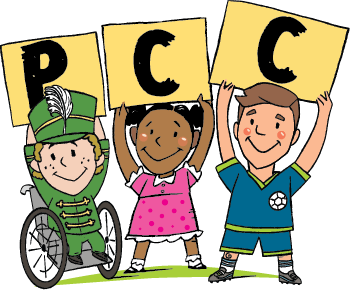When most people think of childhood, they think of being carefree with no responsibilities. Yet, children are not exempt from mental health challenges, and nurturing their mental health remains an important part of their well-being from a young age.
As their parent or caregiver, you must understand the warning signs of mental illness and recognize how to support them should this part of their health decline.
The Difference Between Mental Health and Mental Illness
You may be thinking, “My child doesn’t have mental health! They’re fine! They’re only 5 (or 7 or 10)!”
This is a common misunderstanding of terminology. People believe that “mental health” and “mental illness” are synonyms. Mental health — like physical health — is something that every individual has. It is something that can be nurtured and maintained. Some people may have positive mental health while others may have negative.
On the other hand, mental illness impacts a person’s ability to function in the long term. It is normal to feel a range of emotions, including sadness, anger, frustration, unhappiness, or stress because of difficult situations in your life. However, if these emotions endure over a long period, then they can cause mental illness, which impacts how we see ourselves and the world around us.
Developing a Mental Illness
Anyone can develop a mental illness due to long-term emotions or other environmental factors. However, some people are more prone to this occurrence. Here are some risk factors that may increase your child’s risk:
- Family history of mental illness
- Unresolved trauma
- Abusive childhood experiences
- Stressful live events
Examples: Death of a loved one, financial problems, or divorce
• Environmental influences on a fetus
Examples: Exposure to drugs or alcohol
• Social factors
Examples: Discrimination, poverty, or barriers to opportunity
Warning Signs of Mental Illness in Children
Parents and caregivers often miss signs of mental illness in children because they are different than they are in adults. Children don’t always have a sense of what’s wrong, and they may not be able to verbalize what they are feeling. Therefore, you may need to watch for behaviors and patterns and piece together the following key indicators.
1. Mood Changes
Prolonged periods of sadness, excessive crying, irritability, or noticeable mood swings
2. Difficulty Concentrating
Signs of trouble focusing or sitting still
3. Changes at School
Reports of declining academic performance, trouble concentrating, reluctance to attend school, differences in behaviors toward teachers and peers
4. Intense Feelings
Overwhelming fears, worries, or anxieties for no reason or those that interfere with daily activities
5. Frequent Nightmares
Nightmares that happen more than once a week, affect your mood, or impact your daily activity
6. Increased Aggression
Increased disobedience, dangerous or out-of-control behavior, and frequent fighting
7. Frequent Temper Tantrums
Tantrums that are longer or more severe and occur multiple times per day in children older than 5 regularly
8. Physical Harm
The act of deliberating hurting one’s own body (cutting or burning)
9. Unexplained Weight Loss
A sudden loss of appetite, frequent vomiting, or use of laxatives (signs of a potential eating disorder)
10. Substance Abuse
Using drugs or alcohol to cope with unhealthy feelings
What Are the Most Common Childhood Mental Disorders?
You’ve ended up on Google, and you’re seeing your child’s symptoms populate for mental illnesses you’ve never heard of. Don’t stress. No one can diagnose your child besides a qualified medical professional, and there are only a handful of mental health disorders that are even common in children. Here’s what is most likely if your child is showing symptoms.
- Anxiety
Does your child seem nervous or worried about daily activities? Is it starting to interfere with their life? If so, they may have an anxiety disorder, panic disorder, or social anxiety. Treating anxiety and learning coping mechanisms can help to address symptoms they’re experiencing.
- Depression
Depression is characterized by persistent sadness or loss of interest in activities they once enjoyed. If your child hasn’t been functioning normally and you suspect depression, talk to their pediatrician and get a referral for a mental health professional.
- ADHD
ADHD is now a common diagnosis for young children. It’s marked by a pattern of inattention or hyperactivity-impulsivity that interferes with their development. Keep in mind that ADHD symptoms are often different in boys than they are in girls.
- Behavioral Disorders
If your children display a pattern of disruptive and violent behaviors that is not typical of their age, then they may have a behavioral disorder. The most common of these include conduct disorder and oppositional defiant disorder.
- ASD
ASD stands for Autism Spectrum Disorder. Autism, a developmental disorder, has become more well-known over the past two decades. This disorder impacts communication and behavior.
Seeking Support for Childhood Mental Illness
How can you best support a child with mental illness? Here are 8 steps you can take immediately to increase your child’s chances of success.
1. Talk to your child
Your very first step should be talking with your child. Have an open, honest, and non-judgmental conversation with them about the struggles they’re having. Let them know that you’re there to support them and listen without interruption, so they can tell you how they feel and what they want to do.
2. Consult with medical professionals
Schedule an appointment with your child’s pediatrician, so they can evaluate their well-being. Depending on the circumstances, your pediatrician may recommend you to a mental health doctor like a child psychologist psychiatrist, or licensed counselor.
3. Collaborate with your child’s school
Schools have existing support system to help with mental health issues, so tapping into these resources can be incredibly valuable (especially if you aren’t sure where to start). Your child’s teachers and school counselors can offer observations and insights into your child’s world at school and get you moving in the right direction.
4. Consider therapy
If your child is struggling with their mental health, therapy can be a great option. Whether they end up in cognitive-behavioral therapy, play therapy, family therapy, or another type, a qualified professional will be able to help them work through their symptoms and feelings. Talk to your pediatrician about getting a referral for therapy if you’re interested.
5. Encourage open communication
Reassure your child that they can tell you anything. When they do share with you, listen actively and validate their feelings. The more open the communication in your household, the greater chance you have of meeting your child’s needs both physically and mentally.
6. Establish a routine
Routines provide a sense of consistency, stability, and security. Regardless of their age, your child will benefit from regular mealtimes, reasonable bedtimes, and social and extracurricular activities.
7. Promote healthy habits
Mental illness can take a real toll on your child’s physical health. By promoting healthy habits like physical activity, healthy eating, and adequate sleep, you can provide balance that improves mental health and overall well-being.
8. Limit screen time
Research shows that excessive screen time can contribute to anxiety and depression. Set reasonable limits on your child’s use of screen time (phone, computer, video games, social media, etc.) and encourage them to do other activities. Reading books, socializing with friends, exercising, playing outside, and spending time with family are all awesome ways to improve mental health.
Final Thoughts
Do you need support with your child’s mental health? Come visit your pediatric care team! Remember, only a doctor can diagnose your child and get you the care you need.
Jacksonville Pediatric Care Centers provide care. Dr. Benitez and his team of Jacksonville pediatricians work around the clock to provide exceptional pediatric care.










